Letter of Retirement Samples
-
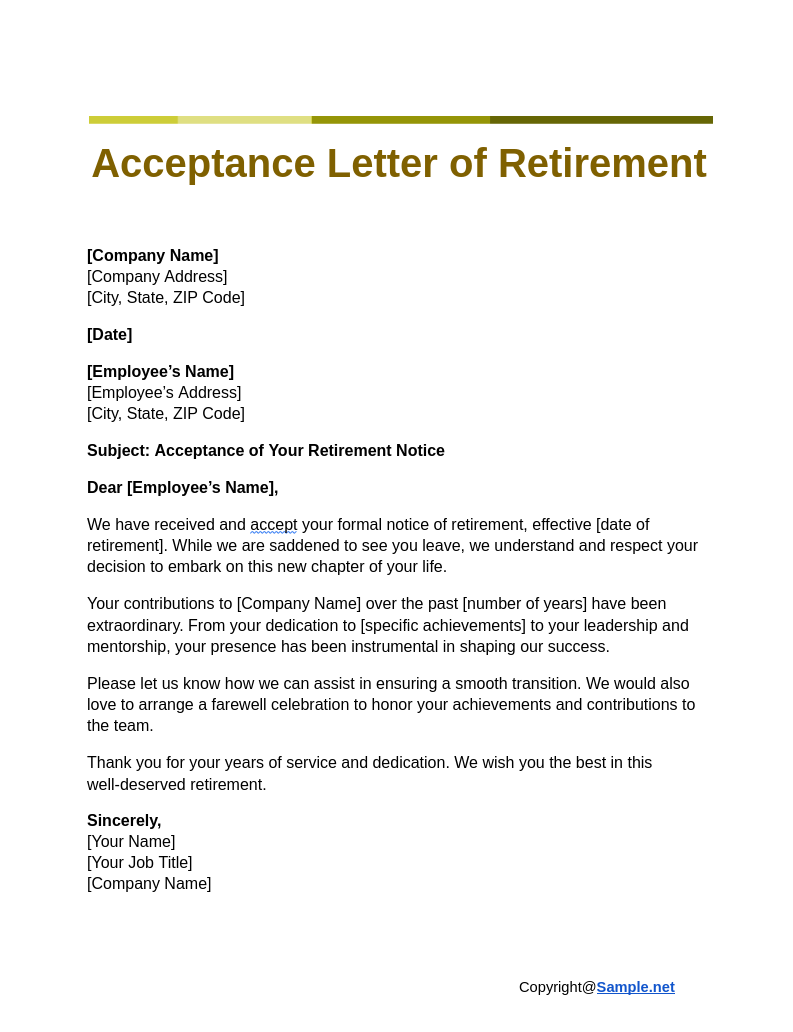
Acceptance Letter of Retirement
download now -
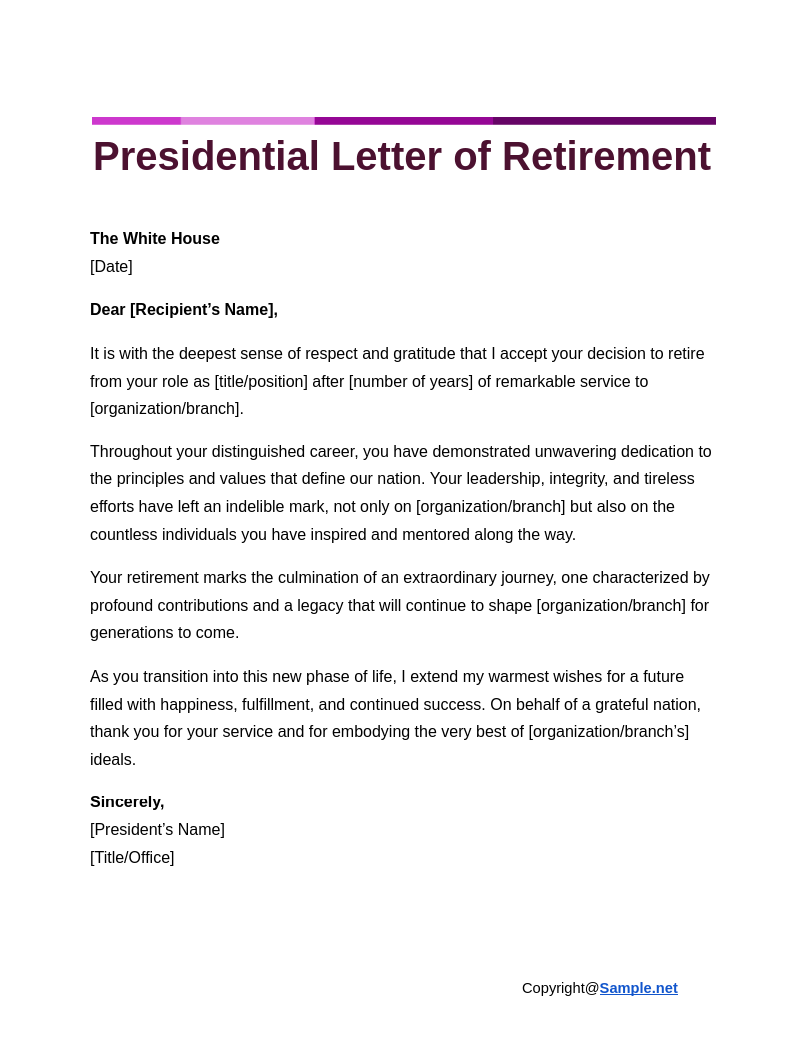
Presidential Letter of Retirement
download now -
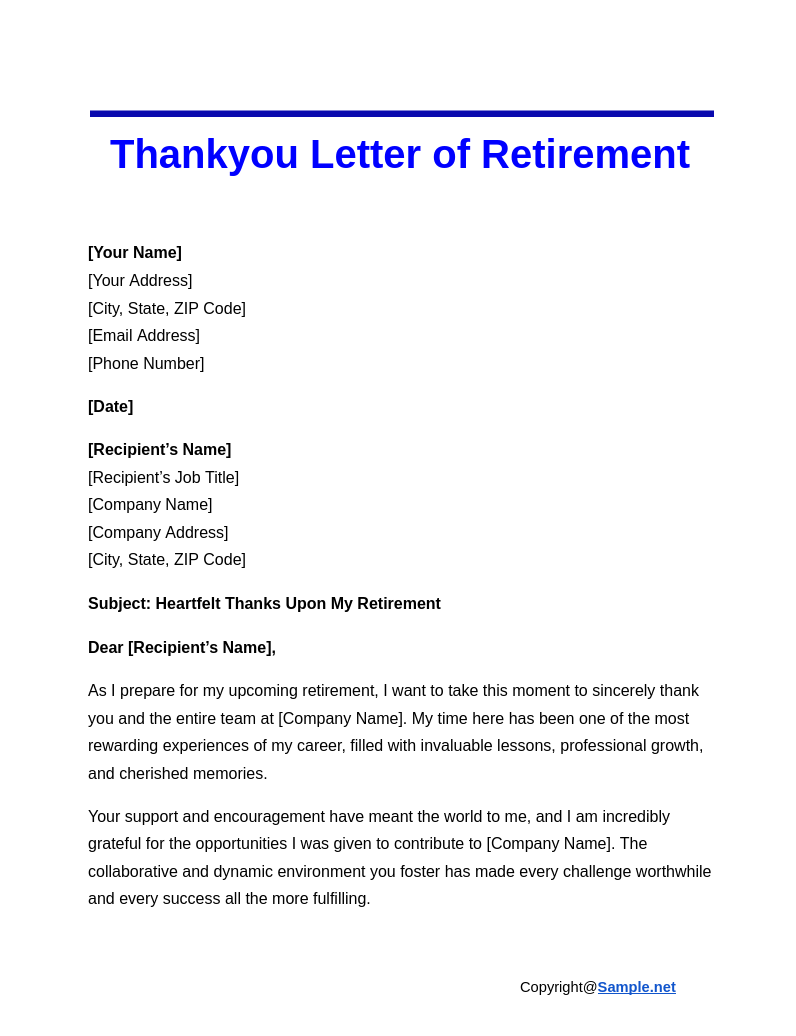
Thankyou Letter of Retirement
download now -
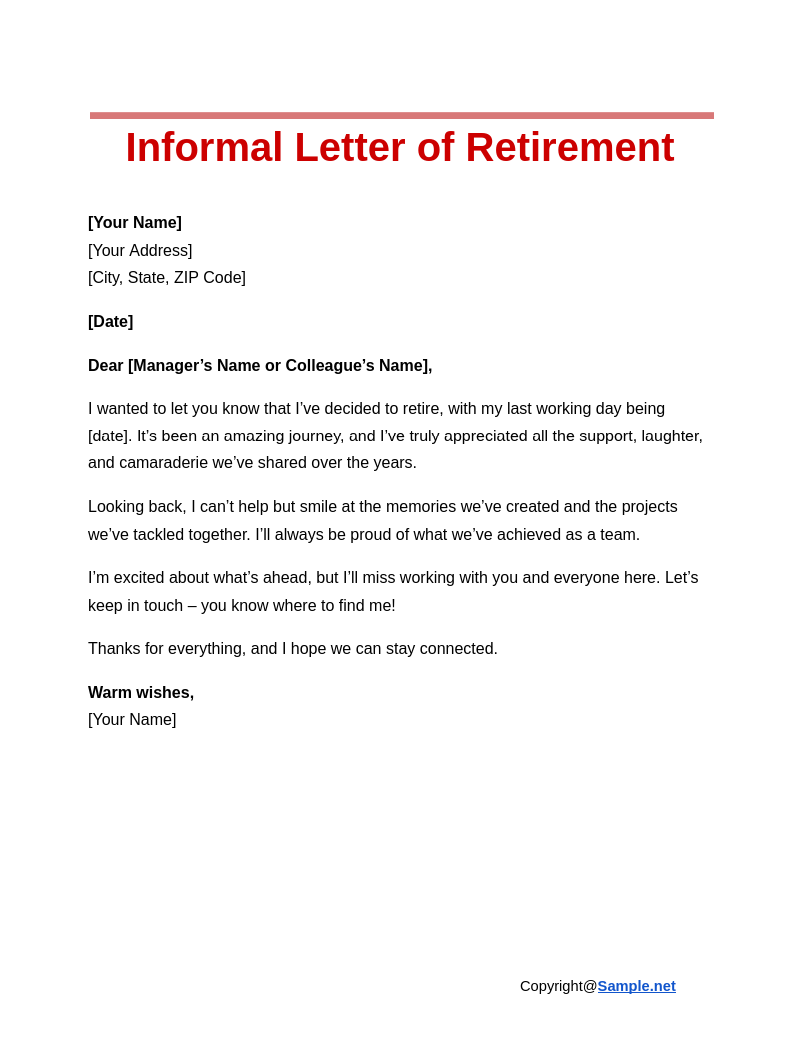
Informal Letter of Retirement
download now -
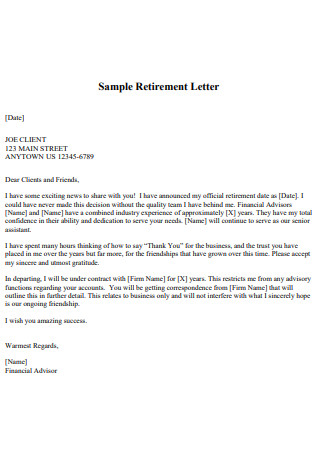
Sample Letter of Retirement
download now -
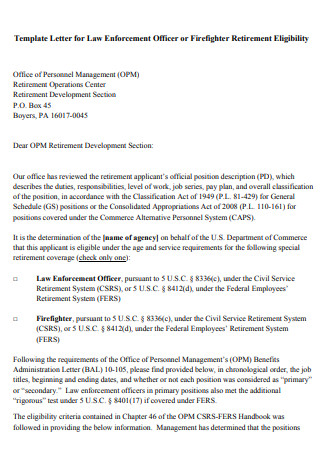
Law Enforcement Officer Letter of Retirement
download now -
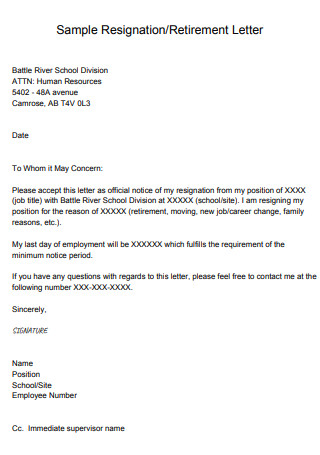
Letter of Retirement Resignation
download now -
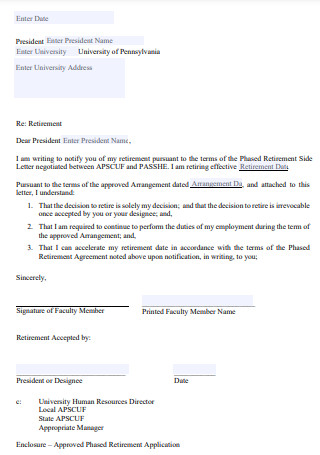
Simple Letter of Retirement
download now -
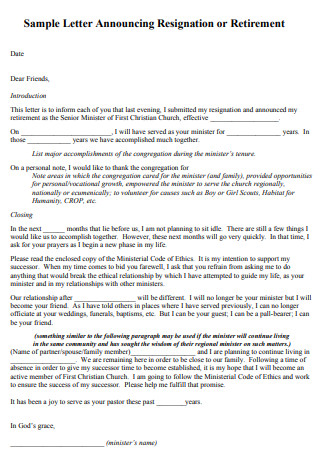
Letter of Announcing Retirement
download now -
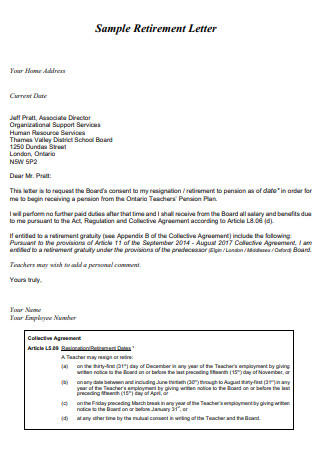
Letter of Retirement
download now -
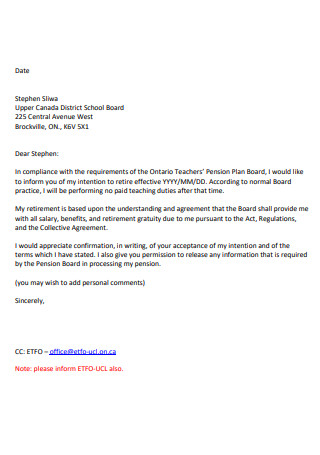
Letter of Retirement from Teaching
download now -
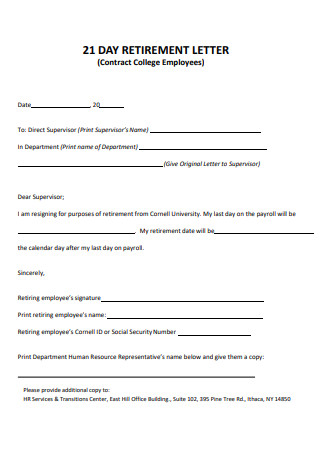
Letter of Retirement to Contract College Employees
download now -
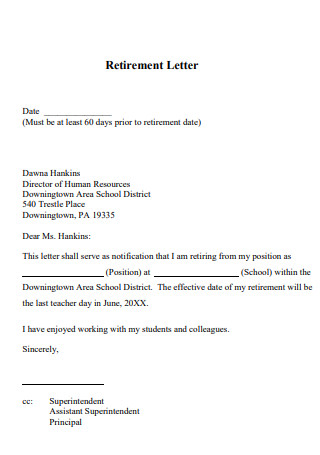
60 Day Prior to Letter of Retirement
download now -
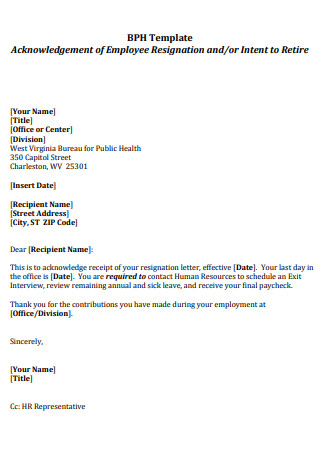
Letter of Retirement Intent
download now -
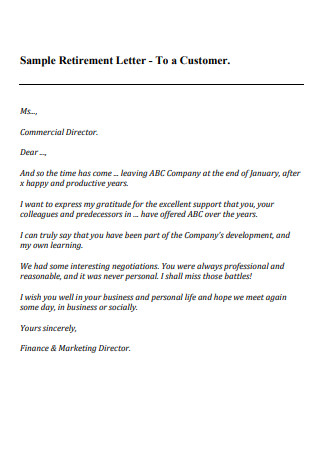
Letter of Retirement to Customer
download now -
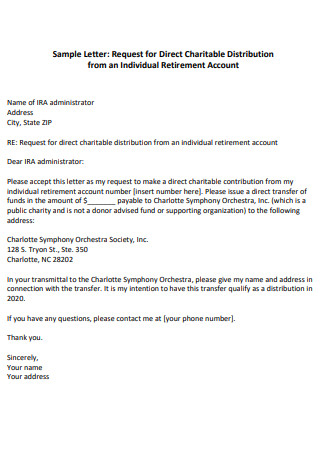
Letter of Individual Retirement
download now -
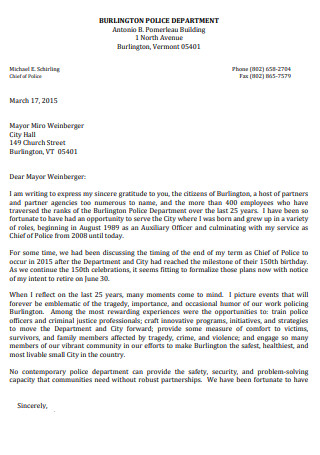
Letter of Retirement to Police Chief
download now -
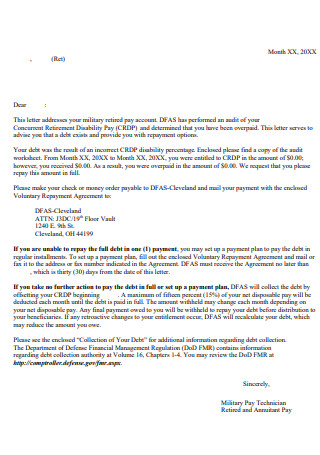
Letter of Retirement to Military
download now -

Basic Letter of Retirement
download now -
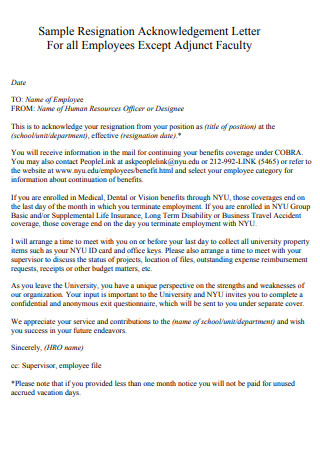
Letter of Retirement Acknowledgement for Employees
download now -
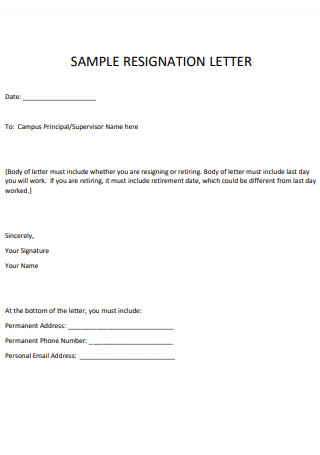
Standard Letter of Retirement
download now -
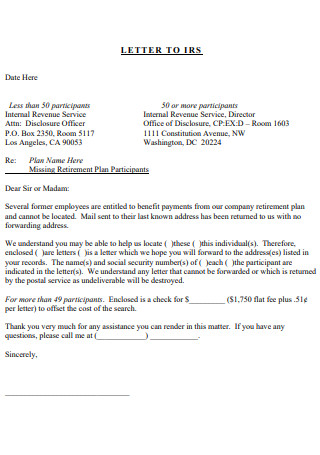
Letter of Retirement Plan
download now -
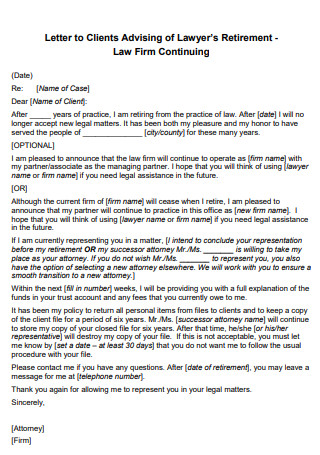
Letter to Clients Advising of Lawyer Retirement
download now -
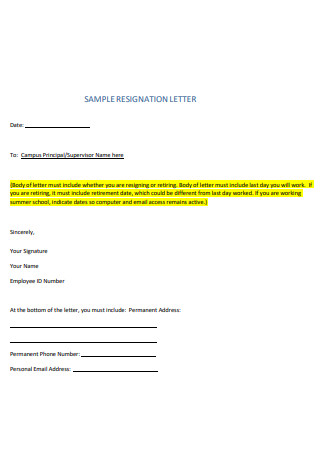
Printable Letter of Retirement
download now -
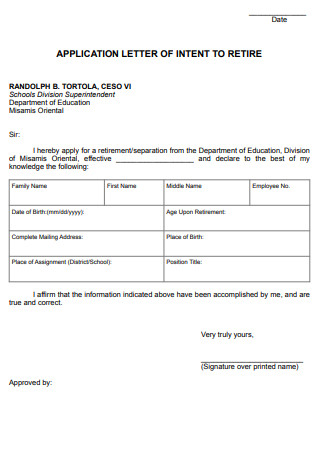
Letter of Retirement from Department of Education
download now -
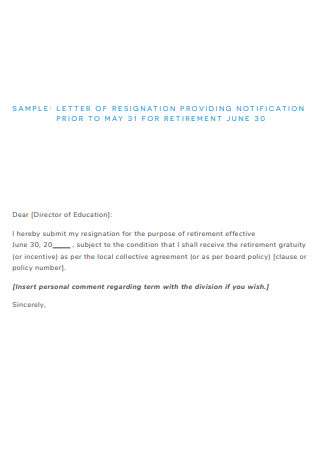
Letter of Retirement Providing Notification
download now -
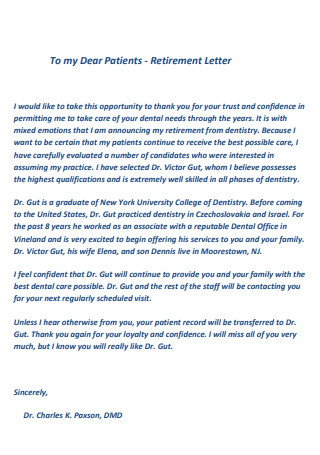
Letter of Retirement to Patients from Dentist
download now -
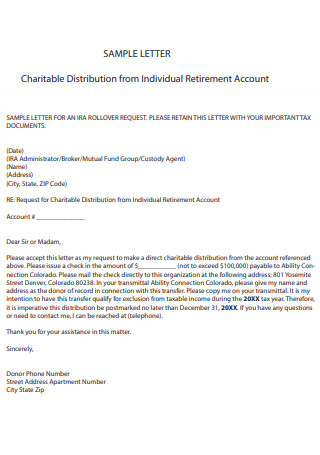
Letter of Charitable Distribution from Individual Retirement Account
download now -
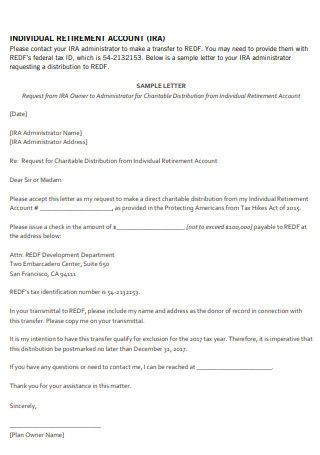
Letter of Individual Retirement Account
download now -
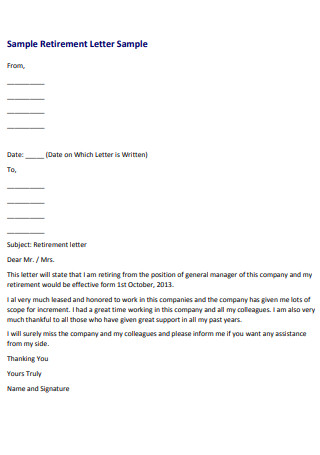
Formal Letter of Retirement
download now -
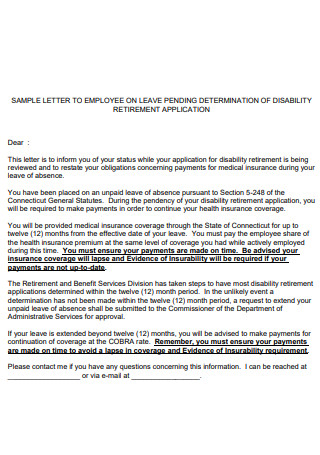
Letter of Disability Retirement Application
download now -
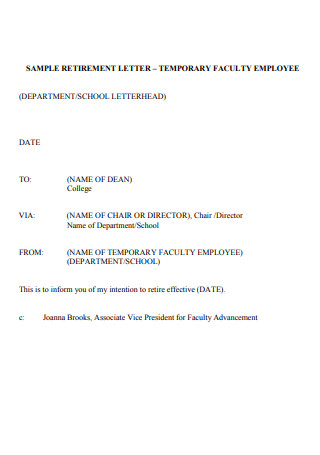
Letter of Retirement for Temporary Faculty
download now -
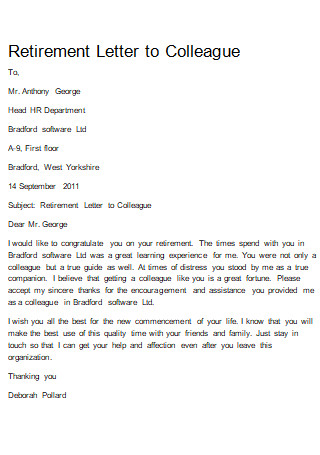
Letter of Retirement to Colleague
download now -
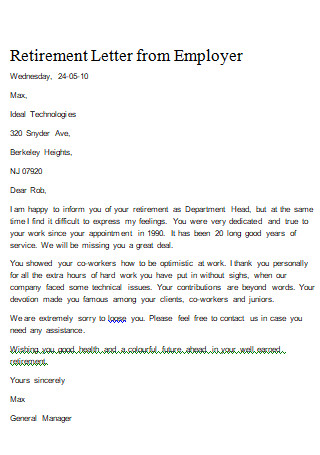
Letter of Retirement from Employer
download now -
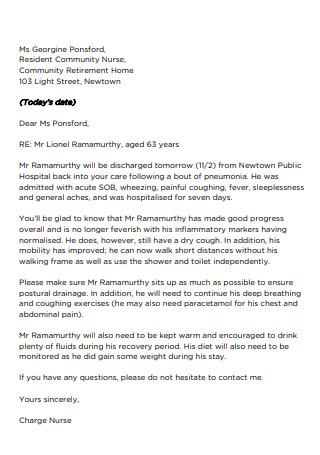
Letter of Retirement from Nursing
download now -
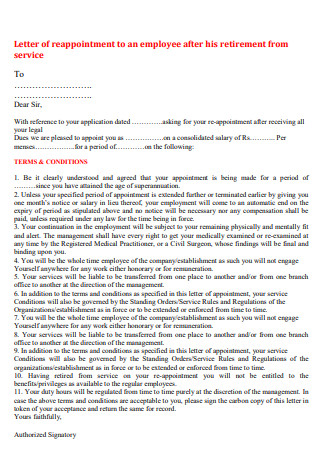
Letter of Reappointment to an Employee After Retirement from Service
download now -
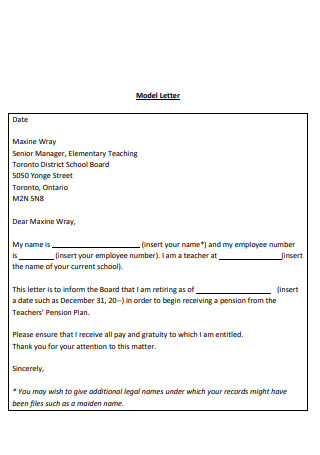
Letter of Retirement from Elementary Teaching
download now -
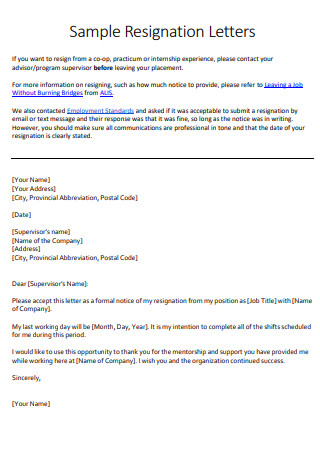
Editable Letter of Retirement
download now -
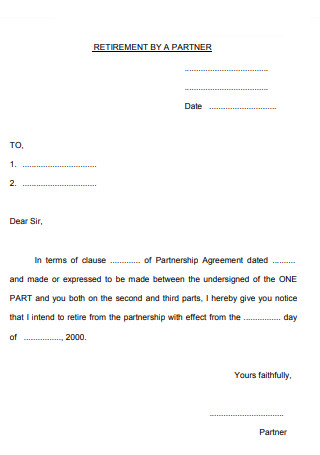
Letter of Retirement From Partner
download now -
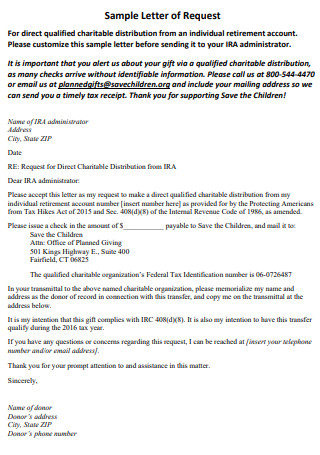
Formal Letter of Retirement
download now -
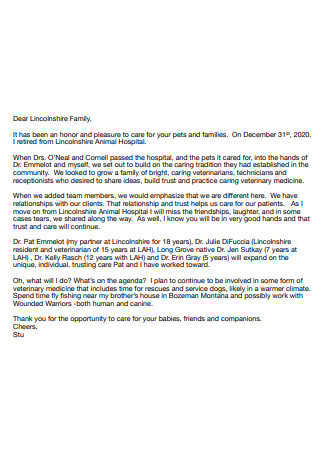
Letter of Retirement from Veterinarian
download now -
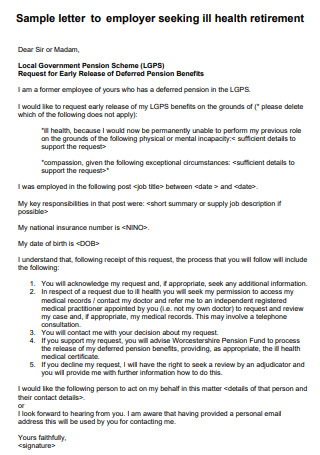
Letter of Retirement Due to Ill Health
download now -
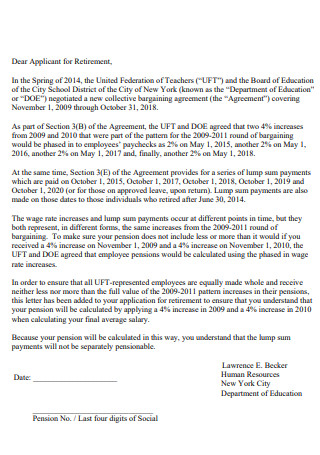
Letter of Retirement to School Board
download now -
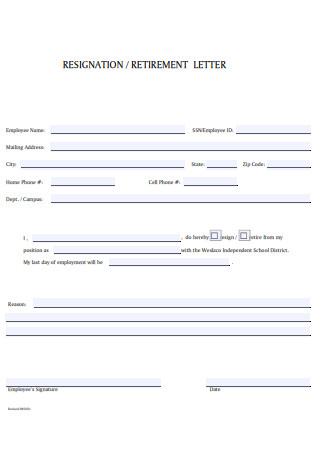
Letter of Retirement from the School District
download now -
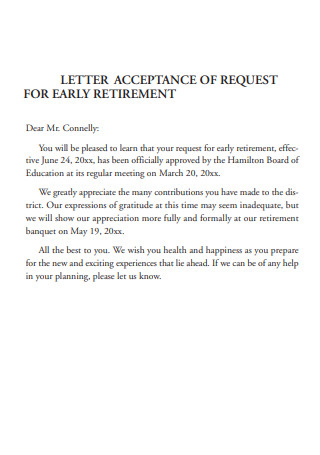
Letter of Early Retirement
download now -
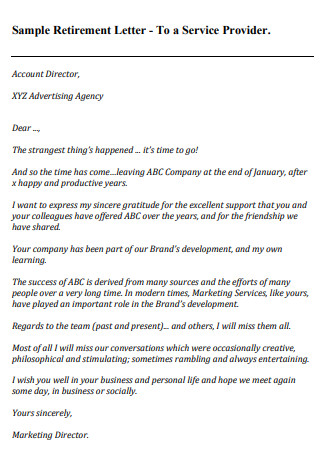
Letter of Retirement to Service Provider
download now -
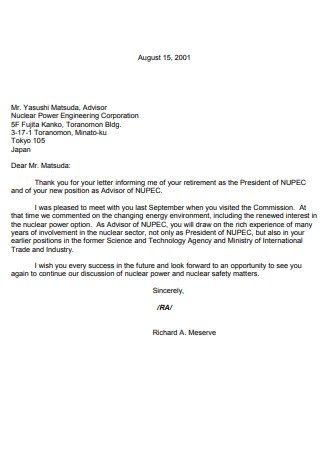
Letter of Retirement to Former President
download now -

Letter of Retirement in PDF
download now -
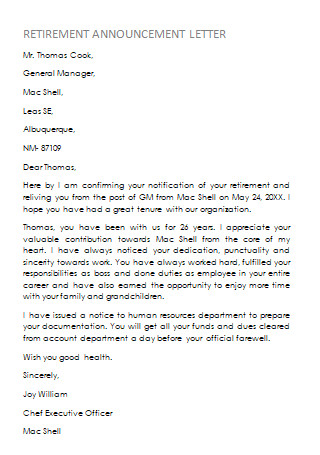
Letter of Retirement in DOC
download now -
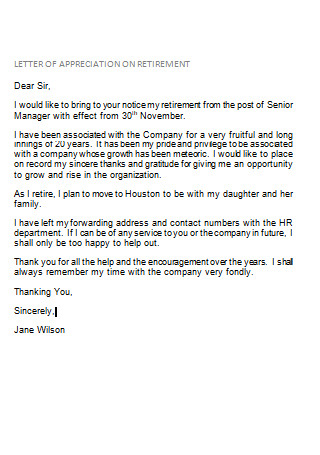
Letter of Apprection on Retirement
download now -
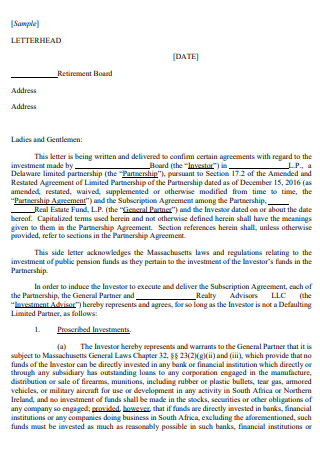
Proffesional Letter of Retirement
download now -
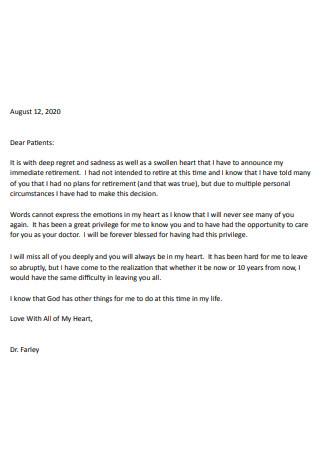
Letter of Retirement to Patients from Doctor
download now -
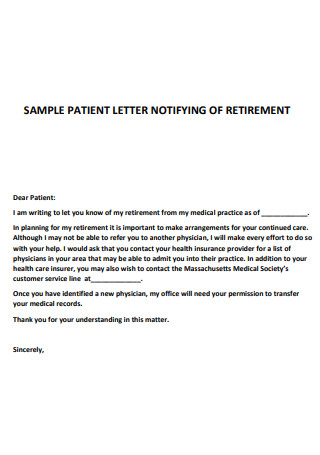
Sample Patient Letter Notifying of Retirement
download now -
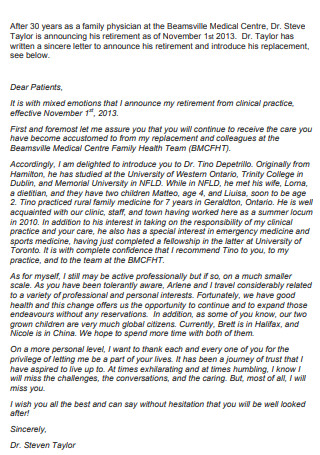
Letter of Physician Retirement
download now -
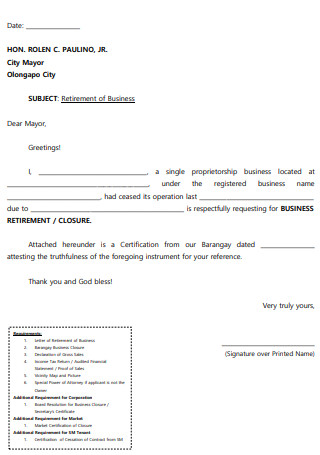
Letter of Retirement from Business
download now
FREE Letter of Retirement s to Download
Letter of Retirement Format
Letter of Retirement Samples
What is a Retirement Letter?
Benefits of a Retirement Letter
How to Write a Retirement Letter
FAQs
Can a retirement letter be handwritten?
How many days is immediate resignation?
What should I include in a letter of retirement?
What should I avoid in a letter of retirement?
How does a retirement letter benefit the employer?
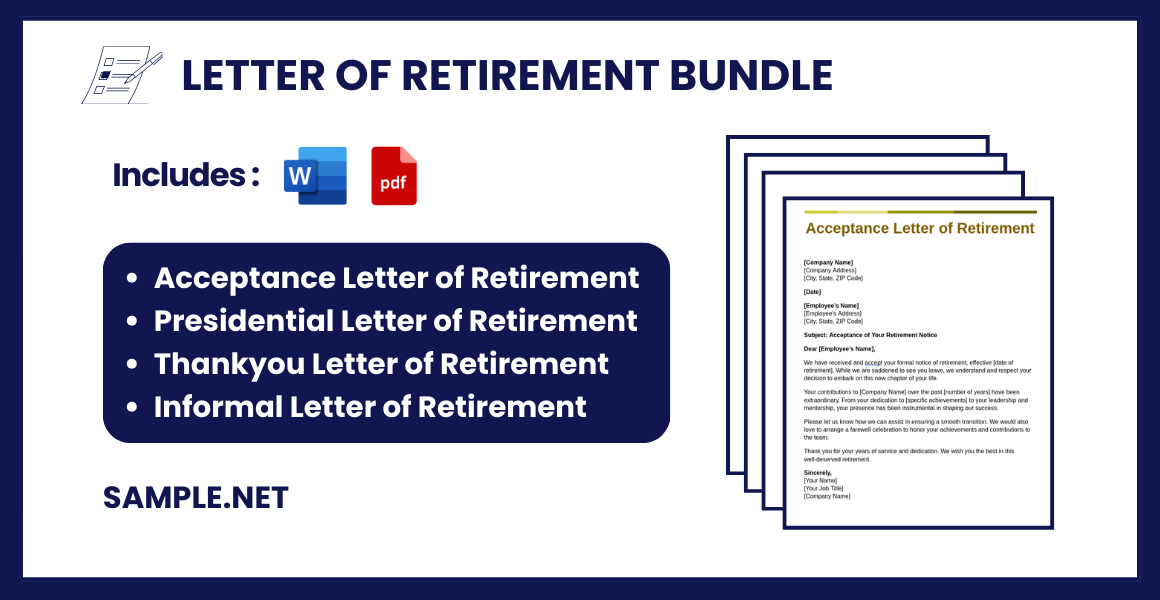
Download Letter of Retirement Bundle
Letter of Retirement Format
[Your Name]
[Your Address]
[City, State, ZIP Code]
[Email Address]
[Phone Number]
[Date]
[Recipient’s Name]
[Recipient’s Job Title]
[Company Name]
[Company Address]
[City, State, ZIP Code]
Subject: Notice of Retirement
Dear [Recipient’s Name],
I am writing to formally announce my retirement from my position as [Your Job Title] at [Company Name], effective [Last Working Day, typically two to three months from the date of this letter].
It has been a privilege to work with [Company Name] for [number of years] years, and I deeply value the experiences and opportunities I have gained during my time here. Working alongside such talented and supportive colleagues has been an incredible journey, and I am truly grateful for the trust and encouragement I have received throughout my tenure.
As I transition into this next phase of my life, I remain committed to ensuring a smooth handover of my responsibilities. Please let me know how I can assist during this period, whether it involves training a successor or completing pending projects.
I would like to express my heartfelt gratitude for the support, collaboration, and mentorship I have received from [Recipient’s Name] and the broader team. [Optionally, include specific achievements, memories, or experiences to personalize the letter.]
Although I am retiring, I look forward to staying connected and will always cherish the relationships and lessons I have gained during my time at [Company Name].
Thank you once again for the incredible opportunity to be a part of [Company Name]. I wish the company continued success and prosperity in the years to come.
Sincerely,
[Your Name]
What is a Retirement Letter?
A letter of retirement is a formal written notice from an employee to their employer, declaring their intention to retire from their current role. It is typically addressed to the direct supervisor or human resources department. This document outlines key details such as the retirement date, transition plans, and often expressions of gratitude for the opportunities provided by the organization. It serves as both an official record and a communication tool for planning a seamless exit from the workplace. You can also see more on Official Resignation Letter.
Benefits of a Retirement Letter
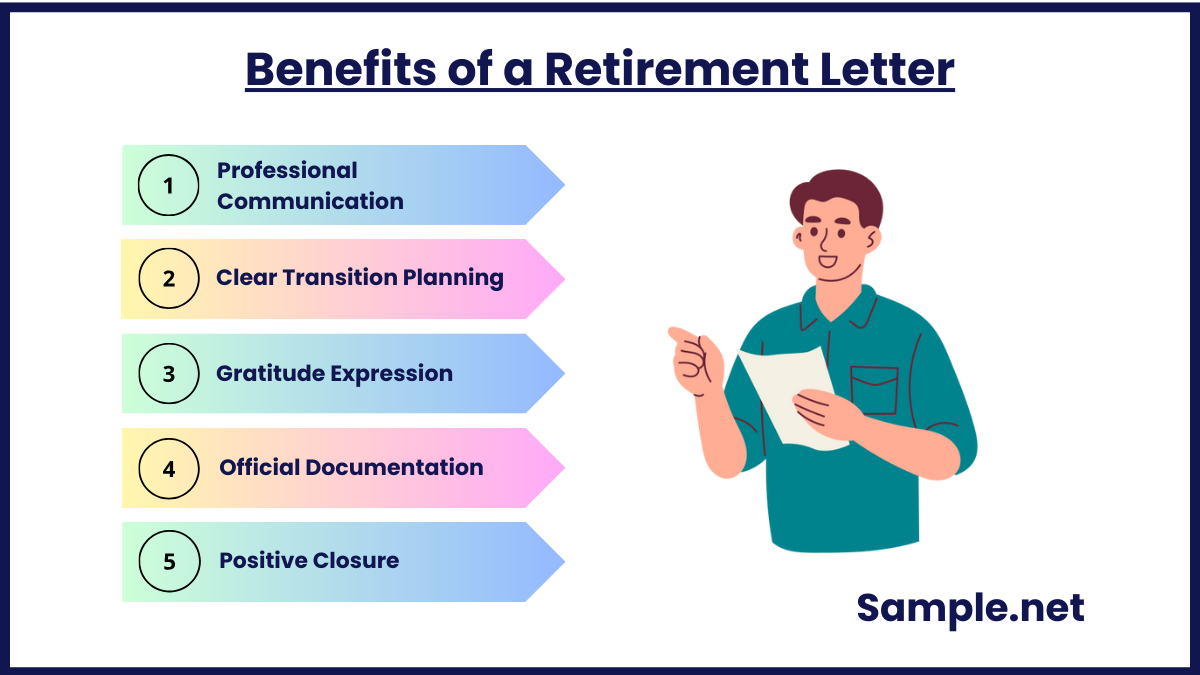
1. Professional Communication: A retirement letter provides a formal and respectful way to inform your employer about your decision to retire.
2. Clear Transition Planning: It helps in outlining your retirement date and facilitates discussions about handing over responsibilities.
3. Gratitude Expression: The letter allows you to express appreciation for the opportunities and experiences gained during your tenure. You can also see more on Job Resignation Letter.
4. Official Documentation: It serves as an official record for HR purposes, ensuring clarity about your retirement process.
5. Positive Closure: Writing a retirement formal letter ensures you leave on a professional and amicable note, maintaining good relationships for potential future references or connections.
How to Write a Retirement Letter
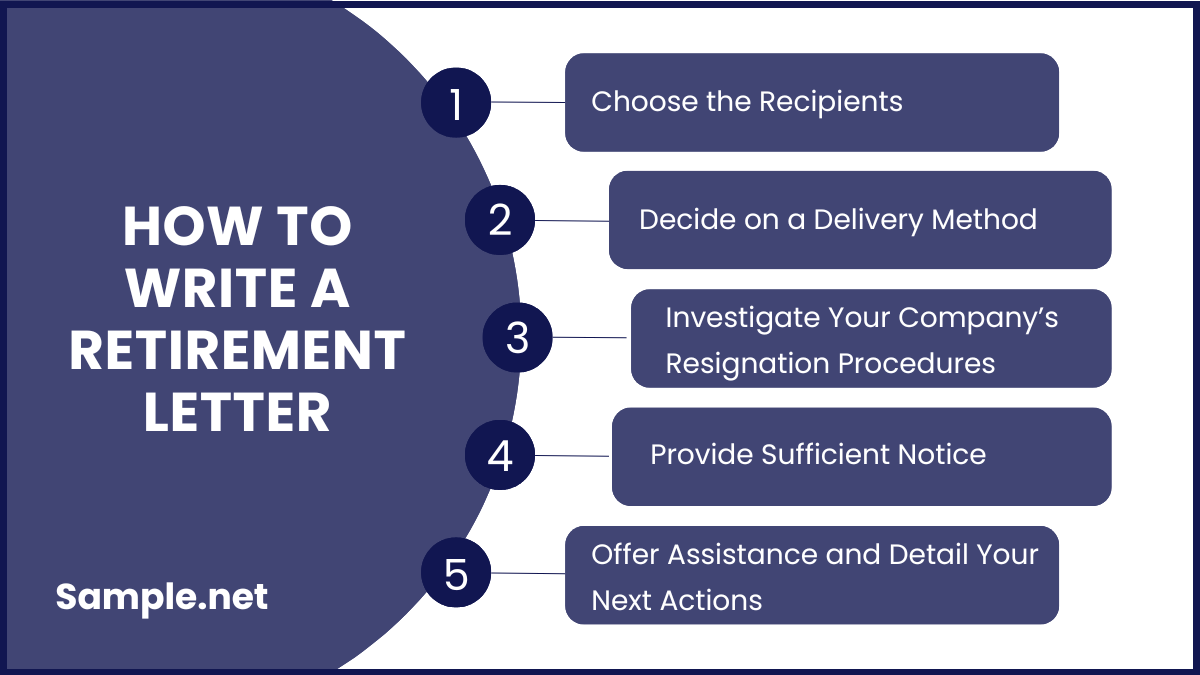
Consider drafting a resignation letter that helps you maintain the company connections and colleague relationships you’ve cultivated throughout your career as you transition from employment to retirement. By submitting a resignation sample letter, you effectively allow your employer to plan for your departure. Before writing your resignation letter, consider the following suggestions:
1. Choose the Recipients
Whom you notify depends on who requires notice of your departure. Depending on your position, this individual may be your superintendent, supervisor, or company’s chief executive officer. This impacts who you address the message to and the salutation and tone of your writing. If you rely on human resources to process your benefits after resigning, your employer may also require you to submit a copy of your resignation letter to HR.
2. Decide on a Delivery Method
You have the option of mailing or emailing your retirement resignation letter. Numerous professionals personally deliver it to the recipient or their office. Choosing a delivery method is essential because it allows you to prepare the document for delivery efficiently. If you interact frequently with your manager or supervisor, you can bring the letter to them and discuss its contents and your impending retirement. Alternatively, professionals with remote employment may choose not to meet with the recipient in person and instead send the message via email.
3. Investigate Your Company’s Resignation Procedures
It may be advantageous to become conversant with your company’s retirement policies. Consider contacting HR to learn more about the required paperwork and discuss your situation with colleagues who may have additional insight. Being knowledgeable can facilitate the resignation and retirement process. You can also see more on Letter Notice.
4. Provide Sufficient Notice
Consider researching your company’s resignation policies and providing them with adequate notice. Some companies prefer that employees offer two weeks’ notice before their last day of employment, although these preferences may vary based on your position and industry. In the case of a retirement-related resignation, you may wish to provide more than two weeks’ notice and may inform your supervisor thirty days in advance.
5. Offer Assistance and Detail Your Next Actions
Depending on the years you’ve worked for the company, your manager may need clarification about who to employ or promote to fill your position. You can offer limited hours as a consultant for the company until they serve your position if you are willing, as you are familiar with the company and its standard operations. You can also suggest to management that one of your colleagues assume your role and responsibilities and advocate for their advancement. You can also see more on Relieving Letter.
FAQs
Can a retirement letter be handwritten?
You should compose a letter of resignation and sign it by hand. This is so because it will be more readable. You may write the letter by hand if you so choose.
How many days is immediate resignation?
Resignation is the act of an official or employee whereby they voluntarily relinquish in writing their position effective on a specific date, which shall be at least thirty (30) days. You can also see more on Teacher Resignation Letter.
What should I include in a letter of retirement?
Include your intention to retire, the effective date, gratitude for the organization, and any transition plans. Optionally, share your reflections on your career.
What should I avoid in a letter of retirement?
Avoid negative remarks about the organization, vague retirement dates, or informal language. Ensure the letter remains concise and professional.
How does a retirement letter benefit the employer?
It provides clarity on your retirement timeline, helps with workforce planning, and facilitates a smooth transition, minimizing disruptions to operations. You can also see more on Business Letter.
